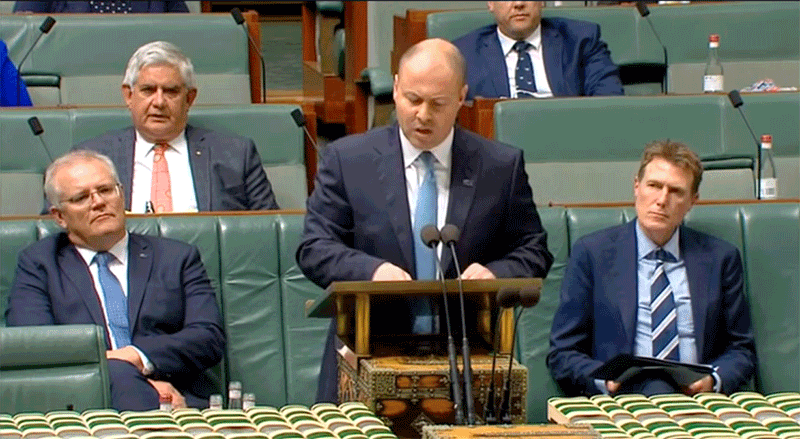Budget delivers positive news for SMEs that could fast track the hospitality industry’s recovery
“Mr Speaker, there is no economic recovery without a jobs recovery. There is no budget recovery without a jobs recovery,” said Treasurer Josh Frydenberg in the opening line of his second budget speech.
“This Budget is all about jobs.
With that, Mr Frydenberg reeled off a long list of tax cuts, stimulus payments, reforms and care packages that the government believes will bring the country out of recession.
While none of it was targeted directly at the hospitality industry, it should have an indirect effect on many of the small businesses, restaurants, bars and cafes that make up the industry and have suffered through 2020 and the COVID-19 pandemic.
The budget has been generally well received by small business advocates, despite Mr Frydenberg delivering a budget deficit of $213.7 billion for 2020-21.
Jennifer Westacott, Business Council chief executive told Auzbiz TV, “It's a really strong budget for a couple of reasons. First of all, it starts to turn the corner from spending money on support to spending money on getting the country going again. Getting people back to work, getting businesses back on track. And it does that through a number of really important measures.

“A huge injection into encouraging businesses to invest – $27 billion. That's going to create the work orders, create the pipeline of activity that's going to create jobs. Putting money into people's pockets, permanently into their pockets, which will get people spending and that of course creates jobs as they generate more demand. A huge skills package to make sure people can retrain and reskill. A big deregulation package to make it easier to do business. Wage subsidies for those higher-risk people who need extra support to get back into the labour market. So, if you take it all together plus all of the things that have been announced over the last few weeks, this is a budget that starts to turn that corner from an economy in trouble to an economy that starts to thrive again.”
There were several highlights for small businesses.
From budget night to June 20, 2022, businesses with a turnover up to $5 billion will be able to deduct the full cost of eligible depreciable assets of any value in the year they are installed.
Of high importance is the losses incurred by SMEs up to 2021/22 will be carried back against profits made in or after 2018/19.
Changes to fringe benefits tax and the fact small and medium businesses can access up to 10 tax concessions, should also have a positive impact.
The other target group that could help hospitality recover quickly is the 16-to-35 demographic, who will be heavily supported by the government’s JobMaker scheme.
The Morrison government has pledged up to $200 a week for businesses to hire young Australians.
The scheme is part of a $4 billion budget measure aimed at reversing the predicted increase in youth unemployment during the recession.
Businesses that employ young workers who had previously been receiving jobseeker will be eligible. Then government has also expanded training subsidies, by pledging to cover half the wages of 100,000 new apprenticeships and traineeships.
“Young people can look at this budget tonight and know that this government has got their backs to get them into a job, not for them to spend a life on welfare,” Prime Minister Scott Morrison said during question time on Tuesday.
The hiring credit of $200 will be paid to businesses who hire people aged 16 to 29. $100 a week will go to businesses hiring in the 30- to 35-year-old bracket. The hiring credit is available for 12 months and the scheme begins on Wednesday.
The Treasurer estimates this initiative “will support around 450,000 jobs for young people.
“Having a job means more than earning an income. It means economic security. It means independence. It means opportunity. We can’t let this Covid recession take that away.”
Of course, there are issues.
This budget is predicated on the fact a coronavirus vaccine will be rolled out across Australia by late next year.
This is a key budget assumption that may not come to pass. However, the government has predicted Australia's economy to grow 4.75 per cent next financial year on this basis.
The situation in Victoria is also a key factor. The government expects Victoria to gradually lift restrictions to December this year, putting the state on par with others by Christmas.
Case numbers are key here and again, there is no telling what may happen.
Should these factors not come to pass, the deficit may continue to grow.
That is why this budget is all about creating jobs, that will in turn create cash to kickstart the economy.
With cash so cheap at the moment and interest rates to remain low for some time to come, these measures de-risk the high expenditure to some extent and make any further stimulus packages much easier to decide upon.
CreditorWatch Chief Economist, Harley Dale, said “This Federal Budget is all about generating an economic recovery through creating jobs. Against a backdrop of the largest deficit and debt levels since the Great Depression, the government is to be commended for announcing a number of measures that will assist in generating jobs and economic growth.
“The job maker hiring policy is, for example, a smart way to generate employment and the bringing forward of tax cuts makes sense in the current environment.
“The government has considered a suite of policies that cover a broad range of the Australian economy – not being one dimensional, but rather all-encompassing – ‘pumping tyres up for everyone rather than a select few’.
Jonathan Jackson, 7th October 2020







